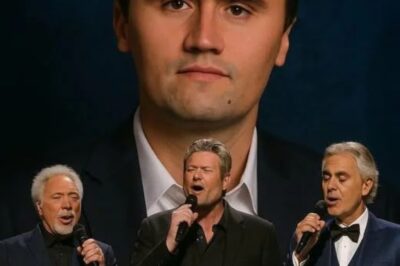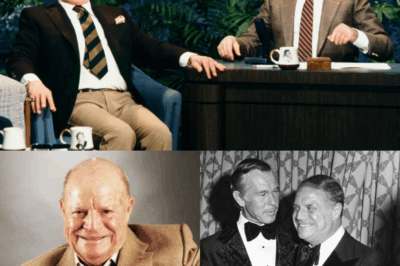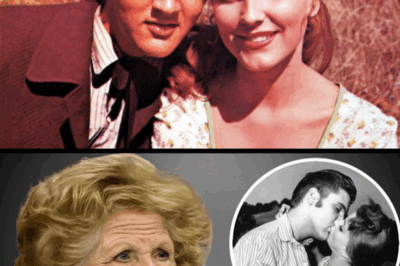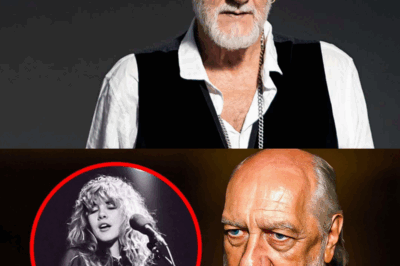For nearly thirty years, Jon Bon Jovi and Richie Sambora were the electric pulse behind one of rock’s most iconic bands. Two kids from New Jersey, their journey from gritty local gigs to stadium-filling legends was the stuff of rock and roll dreams. On stage, they seemed inseparable—voices and guitars blending in a chemistry so powerful that fans believed nothing could ever break them apart. Yet, as the lights faded and the crowds dispersed, cracks began to form behind the scenes. Silent decisions, shifting loyalties, and unspoken conversations slowly reshaped their partnership, leading to one of music’s most talked-about splits.

Now, after years of silence, Richie Sambora has finally spoken out, revealing what really happened between him and Jon Bon Jovi—and why the truth is more complicated than anyone ever imagined.
Long before the world tours and platinum records, Richie and Jon were just two ambitious kids molded by the blue-collar spirit of New Jersey. Richie hailed from Woodbridge, Jon from Sayreville, both chasing the impossible dream of breaking out of the local club circuit. Richie played in bands like Message, Jon with the Wild Ones, each honing their craft in smoky VFW halls and dive bars. Their paths crossed in 1983, not just because of ambition, but a shared love for music that told stories and stirred emotions—music inspired by the heartland narratives of Bruce Springsteen and the raw power of Led Zeppelin.
When Richie officially joined Bon Jovi that year, the band had just signed a record deal. But something was missing. Richie’s blues-infused solos and natural chemistry with Jon elevated the band’s sound from promising to unforgettable. He didn’t just play guitar; he shaped the songs, weaving harmonies that gave them anthemic power while grounding them in emotion. Tracks like “Livin’ on a Prayer” with its iconic talkbox solo, “Wanted Dead or Alive” with its brooding riffs, and “I’ll Be There for You” with its aching sincerity weren’t just hits—they were the result of a rare creative bond. Offstage, their friendship was just as strong. Backstage laughter, shared hotel rooms, and endless nights on the road forged a brotherhood. But even then, the spotlight leaned heavily toward Jon, the designated face of the band. Richie, despite co-writing some of their biggest songs, often found himself a step back in the public eye. In those early years, it didn’t matter. The music was good, the bond was strong, and the fans felt the magic.
By the mid to late ’80s, Bon Jovi had crystallized its identity as one of the world’s biggest rock bands, and Richie Sambora was at the heart of that sound. He wasn’t just laying down guitar tracks—he infused every song with a voice of its own. While Jon’s vocals dominated the airwaves, Richie’s guitar lines carried just as much emotional weight. His style blended bluesy feeling with arena-sized confidence, avoiding the flashy emptiness of many ’80s glam metal acts. He played to serve the song, not his ego. Albums like “Slippery When Wet” and “New Jersey” became blueprints for radio-friendly rock with depth. Richie’s harmonies on “Never Say Goodbye” and “I’ll Be There for You” didn’t just fill out the chorus—they lifted it into anthem territory. He had a knack for knowing when to let the guitar breathe and when to unleash a solo that could make an entire stadium erupt. This wasn’t technical showboating; it was storytelling through music.
Behind the scenes, Richie’s influence was just as vital. He was deeply involved in arrangements, often shaping songs in ways that gave them their timeless appeal. His instinct for balancing melody with raw edge kept Bon Jovi’s sound grounded, even as image-driven trends swirled around them. Yet, while industry insiders and devoted fans recognized his contributions, the larger narrative always seemed to position Jon as the sole architect of the band’s success. For Richie, this imbalance wasn’t yet a breaking point, but it planted the first seeds of unease. The creative process was still collaborative, but the hierarchy was clear: Jon was the frontman, the brand, the voice the world associated with Bon Jovi. Richie was the backbone, the emotional anchor, and the co-writer whose fingerprints were on their biggest hits—but his role wasn’t equally spotlighted.
As the ’90s rolled into the 2000s, Bon Jovi’s place in rock history was secure. They had weathered changing musical trends, adapted their sound, and kept packing stadiums. But inside the band, subtle fractures were growing. Jon’s role as the face and central decision maker became more than just image—it was operational reality. For Richie, who had once been an equal in crafting the band’s vision, the shift was hard to ignore. The pressure of maintaining global success was relentless: constant touring, tight recording schedules, and the weight of expectation. Over time, Richie began to notice his voice in the creative process carrying less weight. Album writing, once a collaborative ritual, had changed. The breaking point came after Richie’s 2012 solo release, “Aftermath of the Lowdown.” Returning from his solo tour, Richie expected to dive back into their old songwriting rhythm. Instead, Jon told him that he and session guitarist John Shanks had already written about thirty songs without him. Richie was stunned—not only by the volume, but by how alien the material felt from the Bon Jovi sound they had built together. “It didn’t sound like the band,” Richie would later say. “It sounded like every song I didn’t want to write.”
That moment shook him. The partnership that had given the world “Livin’ on a Prayer,” “Wanted Dead or Alive,” and “I’ll Be There for You” now felt one-sided. The creative synergy was gone, replaced by a process Richie hadn’t been invited to join. On top of that, he was dealing with personal challenges—struggles with addiction, the emotional toll of his divorce from Heather Locklear, and the need to be present for his daughter, Ava. The road, once a place of camaraderie and purpose, was starting to feel toxic. He kept playing the role for a while longer, touring and showing up for the fans, but every decision that sidelined his input chipped away at the trust that had held the partnership together. It wasn’t a sudden explosion. It was a slow erosion, and Richie could feel it eating away at both his creative spirit and his place in the band.
Then came April 2013. Bon Jovi’s “Because We Can” world tour was in full swing, selling out arenas night after night. The crew of 120 people was ready for the next show in Calgary. Fans were already filling their seats and the band was preparing backstage. Then, the moment no one expected—Richie Sambora simply wasn’t there. No phone call, no warning, just an empty spot where his guitar should have been. The official statement cited “personal reasons,” but behind that vague phrase was a complex mix of exhaustion, frustration, and self-preservation. Years of feeling creatively sidelined had drained him. The joy of playing had been replaced by a grind that left him spiritually depleted. At the same time, his daughter Ava was entering her teenage years, and he knew those moments couldn’t be reclaimed. The nonstop touring schedule had kept him away for too long, and the thought of missing more of her life was unbearable.
For fans, the absence was immediate and jarring. Jon Bon Jovi took on double duty that night, handling both lead vocals and guitar before bringing in Phil X to fill in for the rest of the tour. But to Richie, the blow came later, when he discovered through the internet—not through a conversation—that the band had officially moved on without him. “It was like I disappeared and nobody even called,” he later admitted. This wasn’t an impulsive tantrum or a fight over money. As Richie would explain years later, it was about survival—mentally, emotionally, and as a father. Still, he acknowledged that vanishing like that left confusion and hurt in its wake. “I don’t regret leaving the situation,” he said. “But I regret how I did it.” It was the kind of exit that left no room for closure, just a void where one of rock’s most iconic partnerships used to be.
In the years that followed Richie Sambora’s abrupt exit, there was no public feud, no tabloid war of words—just silence. Jon Bon Jovi carried on with the band, recording albums and touring with Phil X in Richie’s place, while Richie focused on raising his daughter and quietly working on solo projects. But beneath that silence, the absence was felt. Fans speculated endlessly, clinging to the hope of a reunion while both men avoided giving definitive answers. For Jon, the situation was unresolved but not hostile. He consistently maintained there had been “nothing but love” and no fight to cause the split, though he admitted the manner of Richie’s departure had been a shock and that the void it left on stage was undeniable. “The true magic of our live performance was when we sang together. That was our unique spot,” Jon later reflected. “I don’t think that’s been replaced.”

For Richie, it took more than a decade to speak fully about what happened. In 2024, during the promotion of Hulu’s docu-series “Thank You, Goodnight: The Bon Jovi Story” and interviews with Yahoo Entertainment and the New York Post, he finally offered a direct apology. “I just disappeared, man. I ghosted,” he said candidly. “I probably should have talked to Jon. I should have explained it better.” He emphasized that his decision to leave was about protecting his mental health and being present for his daughter, not about money or petty disagreements, but he admitted the way he handled it had left people in the dark, and for that he was sorry. Jon wasn’t blindsided by the apology. On the Howard Stern show, he said he saw it as Richie coming clean for the fans, finally putting to rest the rumors of a behind-the-scenes fight. But while the apology softened the narrative for fans, it didn’t erase the decade of distance. A private meeting between the two, when Richie visited Jon with a birthday gift and sat down to watch the docu-series, ended awkwardly. According to a source, Richie left after the third episode, unhappy with how his departure was portrayed. He didn’t like the way he was being cast and made it clear that “the currency of happiness is more important than the currency of money.”
The apology may have closed a chapter for the public, but for Richie, it was also a statement about reclaiming his own story. It wasn’t about rejoining the band. It was about making peace with the past on his own terms.
To fans, the idea of Richie Sambora and Jon Bon Jovi sharing a stage again feels like the perfect ending to a rock and roll story. Two old friends setting aside the past, picking up their instruments, and reigniting the magic. But for the men who actually lived that story, reality is far more complicated. More than a decade has passed since Richie left, and in that time, both he and Jon have evolved in ways that make a reunion unlikely. Creatively, they now walk different paths. Richie’s post–Bon Jovi life has been defined by balance, fatherhood, and personal fulfillment. His music leans toward blues and soul with a stripped-down, introspective style that reflects where he is today. Jon, meanwhile, has steered the band into a more adult contemporary rock sound, far from the high-gloss hair metal energy that once defined them. Forcing those two directions back together risks losing the authenticity each has worked hard to cultivate.
Health has also become a determining factor. Jon underwent vocal cord surgery in 2022 after years of struggling to sing at his old range. Recovery has been slow, and he has admitted that the voice which carried him through decades of stadium shows may never fully return. A grueling reunion tour with its demands and expectations would be a gamble, both for his health and for the band’s reputation. Richie, too, is more selective now, avoiding projects that would put his well-being at risk.
And then there’s the emotional weight of history. The bond that once made them musical brothers was eroded not by one explosive fight, but by years of small fractures, creative disagreements, shifting priorities, and unspoken frustrations. Those wounds may have scarred over, but rebuilding the trust required to work together at the highest level would take more than nostalgia. Jon has been candid about where he stands. “We had our run,” he told the Sunday Times with calm finality. He’s focused on the present, on making new music with the band as it exists now, and on sustaining a life that no longer revolves around chasing past glory. Richie, for his part, has found peace outside the machine of constant touring, pouring his energy into the relationship with his daughter and pursuing music on his own terms.
Fans may keep dreaming, but for Jon Bon Jovi and Richie Sambora, the reunion already happened. It’s in the memories, the music, and the legacy they built together. What comes next will be separate chapters in the same remarkable story. Richie Sambora may never return to Bon Jovi, but the truth he’s shared after all these years has given fans a new perspective on their history. Some see heartbreak, others see closure, but everyone can agree—the music they made together still stands the test of time.
![]() Web
Web
News
Jennifer Aniston, Ben Affleck, Tom Hanks Sign Letter Warning of ‘Dark Moment for Freedom of Speech’ amid Jimmy Kimmel News
400 celebrities, including prominent Disney stars, such as Selena Gomez, Pedro Pascal, Diego Luna, Martin Short and Meryl Streep, signed…
A TRIBUTE THAT CROSSED OCEANS AND GENRES: No one could have predicted it. In a moment that stunned the music world, country superstar Blake Shelton, legendary tenor Andrea Bocelli, and icon Tom Jones walked onto a single stage, and a roaring arena of 90,000 people fell into a silence so deep it felt like prayer. This wasn’t a festival lineup; it was an unprecedented union of three masters from different worlds, brought together by a shared sense of loss to honor Charlie Kirk. Led by Shelton’s aching, heartfelt voice, their three distinct styles merged into a single, sacred farewell. It was a breathtaking reminder that in times of deep sorrow, music becomes a universal language, erasing all boundaries to speak directly to the heart.
Blake Shelton, Andrea Bocelli, and Tom Jones Unite for an Unforgettable Tribute to Charlie Kirk No one expected it. Three…
After Cheating on Me, My Ex Cut up My Favorite Outfits So I Wouldn’t ‘Look Pretty for Another Man’
I thought leaving after his affair was the hardest part. Then I walked in and saw my husband cutting my…
Before Death, Don Rickles Exposed The Truth About Johnny Carson
Don Rickles was the kind of comedian who could walk into any room—be it a smoky Las Vegas lounge or…
At 92, Debra Paget Finally Reveals Why She Rejected Elvis Presley
If you ask anyone who truly broke Elvis Presley’s heart, most fans will point to the whirlwind romance between the…
Mick Fleetwood turned 78 this year. For decades, he kept the darkest secrets of Fleetwood Mac locked away. But now, he’s finally talking. The affairs that destroyed friendships. The cocaine that cost him $60 million. The betrayal that made Stevie Nicks ban someone from the studio. In March 2025, something happened that shocked everyone. Mick and Lindsey Buckingham were back in the studio together. What they discussed wasn’t just music. It was the truth about what really tore the band apart. And why Stevie might never forgive him.
At 78, Mick Fleetwood Finally Breaks His Silence on Fleetwood Mac’s Most Explosive Secrets Mick Fleetwood turned 78 this year,…
End of content
No more pages to load







Leave a Reply